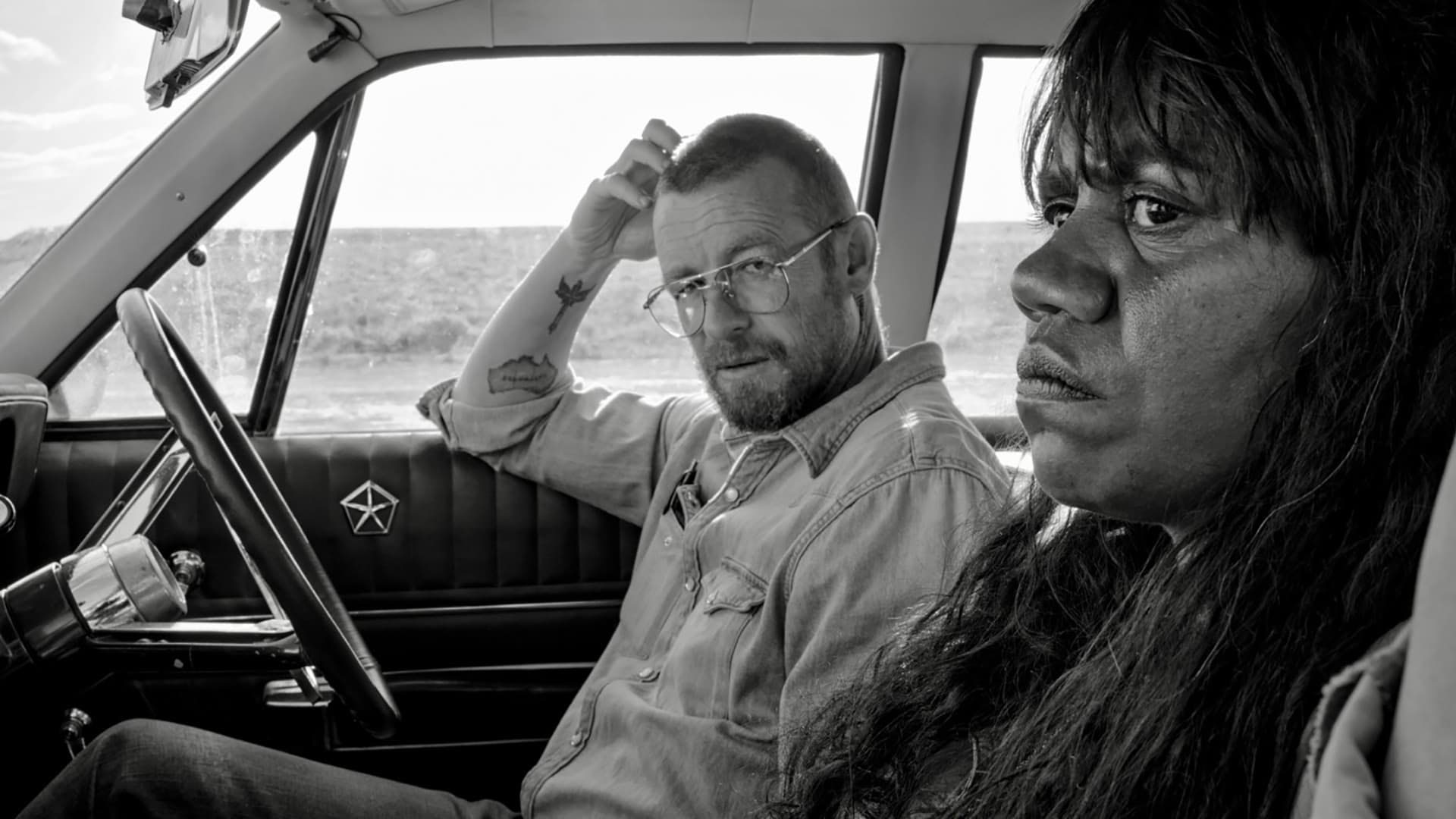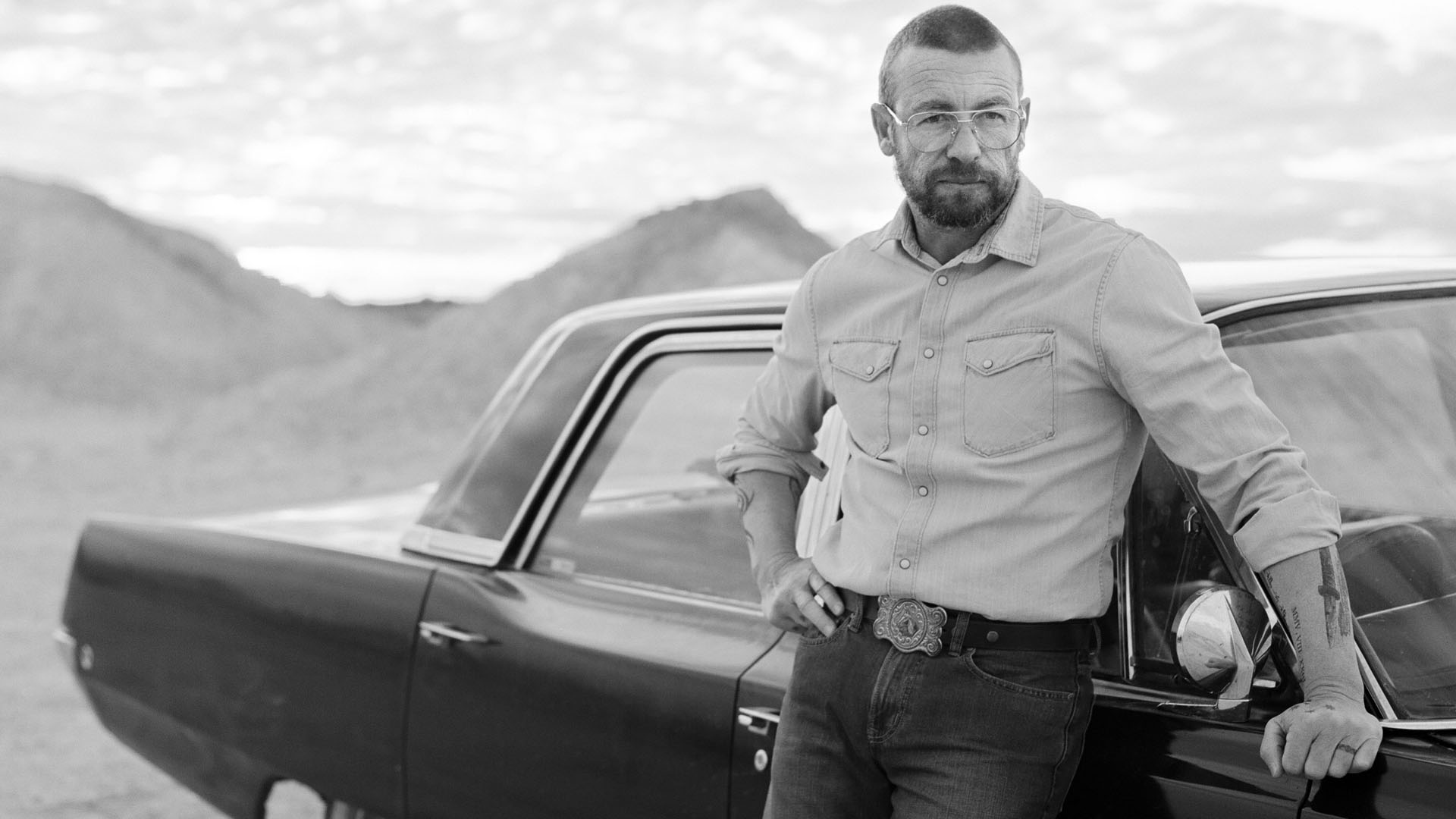Startling outback noir Limbo will leave you yearning

A jaded detective, a remote outback town, and the cold case murder of a local Indigenous girl come together in Ivan Sen’s startling Limbo. Nominated in the official competition at Berlinale, this masterpiece is a haunted gem, writes Stephen A Russell.
“Why did you come here? What do you want from me?”
These haunted lines are spoken to a dingo in Yankunytjatjara language by Charlie Hayes (Rob Collins – The Drover’s Wife, Firebite), a First Nations man whose heart has long-been ossified by the too-hard blow of a missing sister, Charlotte, gone 20 years. Estranged from his son Zac (Mark Coe) and surviving sister Emma (Natasha Wanganeen – Rabbit-Proof Fence, The Tourist), he’s a man adrift, scratching out a living while festering in a caravan on the edge of a town called Limbo.
This wild outback dog, a beautifully sinewy creature and totemic spirit, appears to guide him towards the light of the mouth of an abandoned opal mine, many of which scar the surreal moonlike landscape around South Australian town Coober Pedy, here standing in for Limbo’s fictional outpost. The dingo’s backlit by rays of sunlight, with Charlie standing in the deeper shadows. Mystery Road director Ivan Sen amplifies this mesmeric moment captured in burning chiaroscuro by shooting in startling black and white.
For most of the movie, Charlie only speaks in the coloniser’s English tongue, amplifying the loaded meaning of this meeting and the one-two punch of those heavy questions hanging unanswered in the air.
They could just as easily apply to out-of-towner Detective Travis Hurley, played by an unrecognisable Simon Baker (Blaze, Breath) like a latter-series Breaking Bad’s Bryan Cranston gone bad. As with Charlie and Sen’s antihero Jay Swan before him, Travis has lost touch with his family. A grizzled, heroin-addicted detective who clearly has a fast and loose grasp of the law, he rides into Limbo in a soon-to-be sabotaged car as the preachy droning of a Hillsong-style evangelist grizzles on the radio.
This background chatter is a rare interjection of background noise in a stark film almost entirely stripped of a score. We’re here to sit in the silence of lost souls searching for answers in the parched dust to questions too few bothered to ask. Travis, settling into a buzzing neon-signed motel buried deep in the cooler ground armed with his Chekhov’s Gun, isn’t here to open Charlotte’s cold case. He’s simply been tasked with asking questions, poking at a few loose ends, and then possibly doing so.

Given this non-committal approach, on top of the local law enforcement’s slack handling of the original, far-too-late investigation and the fact Charlie was fingered after cops beat false evidence out of a pair of young Black men way back then, it’s no wonder he’s reluctant to engage with Travis now. “We needed fresh eyes 20 fucking years ago,” Charlie says, ”Not now,” adding, “I don’t talk to cops, especially white ones.”
Rob Collins has the height, broad shoulders, chiselled jaw and brooding eyes of an old-school Hollywood leading man, but even with these powerful features, you can sense him shifting to signal the weight of intergenerational trauma dragging Charlie down. Baker, a similarly gifted actor, is a fine match. Both leads allow these taciturn men to circle one another, searching for the same answers but unable to mend the broken bridge of centuries before them.
A luminous Wanganeen, as Emma, is the closest Limbo comes to an unguarded heart, her cracked shield dropping much faster as she welcomes Travis into her home for a dinner wracked with lines that cannot be crossed. Their mutual need echoes like Charlie’s questions in the cave.
“Why did you come here? What do you want from me?”
A single mum eking out a living between the local diner and the hardscrabble of scouring for scant leftover opals, she has taken Charlie’s kids in with her own. She has complicated history, too, with Joseph (Nicholas Hope, Black Snow), a wispy, almost skeletal cave-dwelling creep whose late brother may have taken some of the answers with him to his shallow grave. But Joseph’s surely holding onto ill-begotten truths of his own.
These are forgotten people, shimmering in the heat haze of a place littered with the great hulking skeletons of a dead industry, whose voices have been silenced for so long they no longer care to raise them. When a drunken Charlie does try to take matters into his own hands, it’s heartbreakingly tragic. No white saviour, Travis may help Charlie out of a scrape, but you get the sense this damaged cop will leave town with more than he can grant in return.
Sen’s Western-tinted detective fiction offers a heartsore reckoning with Australia’s colonial past and its deep scars. A remarkable auteur with a laser-like focus, he handles all casting and guides his leads through his tautly parsed screenplay and precise direction. Capturing Limbo’s drifters with his sharp cinematography that so often places their bodies adrift at a distance, lost in the immensity of this place, Sen ties it all up with precise editing astride his minimal score.
His fingerprints are all over the movie, and the mark they leave in this pockmarked place is deep, unable to be whisked away by the whistling wind.
“Why did you come here? What do you want from me?”
No easy answers glimmer in the cold fire of Limbo’s shimmering opal core, where lampposts hung with tattered tributes cannot light the way to the truth. But you will leave the cinema yearning for more, and for real change.
















